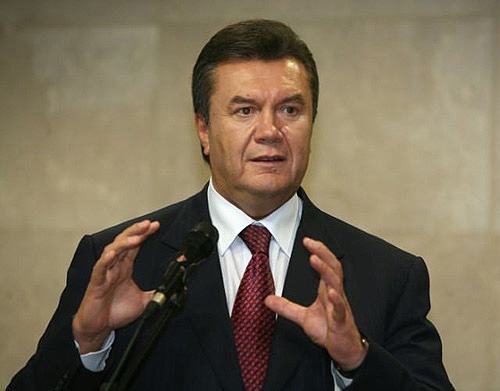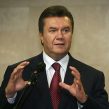
UKRAINE DIVIDED ON RUSSIAN RECOGNITION OF SOUTH OSSETIA
Publication: Eurasia Daily Monitor Volume: 5 Issue: 164
By:

The official Ukrainian response to Russia’s recognition of the independence of Georgia’s two breakaway provinces, South Ossetia and Abkhazia, on August 25, 2008, was not unexpected. The Ukrainian foreign ministry issued a statement on August 26 which noted: “The declaration by the Russian parliament is viewed by Ukraine as a particularly dangerous precedent which will sharply destabilize the security situation in the Caucasus region and throughout the entire post-Soviet space and will have a negative impact on the peaceful solution to inter-ethnic conflicts throughout the world” (Ukrayinska Pravda, August 26, 2008).
Later in the day, the Ukrainian foreign ministry announced that it was cancelling a visit to Moscow by a delegation scheduled to hold talks with their Russian counterparts. The reason given for the cancellation by the ministry spokesman was that it was a protest against the Russian recognition of the independence of the two Georgian regions.
Joining in the condemnation of Russia’s decision, the Deputy Prime Minister and a ranking member of the Prime Minister Yulia Tymoshenko’s political bloc, BYuT, Hryhoriy Nemirya, issued a statement saying: “Ukraine supported and continues to support the sovereignty and territorial integrity of Georgia. This position remains a matter of principle and will not be changed” (UNIAN press service August 26, 2008).
The opposition, however, did not endorse the government’s and the president’s line, and instead stuck to its well-known position of supporting the Russian nationalist position, albeit clocking it with references to western “duplicity” in recognizing Kosovo independence.
Viktor Yanukovych, the leader of the opposition Party of the Regions, remained loyal to Moscow and urged the Ukrainian government to follow Moscow’s lead: “We must act without any double standards — we must do what the West did when Kosovo declared independence. I believe that Ukraine should accept the expressed will of the nations of South Ossetia and Abkhazia and recognize their independence” (Ukrayinska Pravda, August 26, 2008).
“The recognition of South Ossetian and Abkhaz independence by the Russian Federation is the logical continuation of a process which began when western states recognized the independence of Kosovo,” Yanukovych added.
The parliamentary faction of the Communist Party of Ukraine meanwhile submitted a resolution to impeach Yushchenko for his support of “Georgian aggression against South Ossetia,” Korrespondent.net reported on August 26. The political bloc of Yuriy Lytvyn, which was critical of Viktor Yushchenko’s support of Georgia during the war, had not taken a position on this issue as of August 27, but some observers in Kyiv suspect they might also demand that Ukraine recognize the breakaway regions.
South Ossetia thus far has not demanded to join North Ossetia, a part of the Russian Federation, nor has Abkhazia asked to become a member of the Russian Federation. And while this might well be the next move by the governments of the two regions, moves which could be encouraged and supported by the Russian government, it remains unclear how far Moscow is willing to go without provoking a rebellion in the Crimea which might go beyond Moscow’s wishes and control and make demands on the Ukrainian government which might be counter-productive to the Kremlin’s goals.
Ukrainian fears of a Crimean “independence uprising,” funded and encouraged by Russian political leaders and security forces, have been foremost on the minds of Kyiv since the Georgian war. However, a key difference between the Crimea and either South Ossetia or Abkhazia is that the only indigenous ethnic group in the Crimea is the Crimean Tartars who have remained fiercely loyal to Kyiv since the country gained independence.
The Gazeta.ru website reported on August 26 that Russian foreign minister Sergey Lavrov stated that the leaders of Abkhazia and South Ossetia had not indicated that they wanted to be integrated into Russia. “I do not think that this topic will be raised,” Lavrov was quoted as saying. Earlier that day western media reported that Georgian President Mikhael Saakashvili charged Russia with having “annexed South Ossetia and Abkhazia.”
How far Ukrainian President Yushchenko is willing to venture in his pro-Georgian policies remains a matter for speculation. His options are severely limited and the deadline for setting the new price for Russian gas is rapidly approaching. What many in Kyiv fear is that NATO will not grant Ukraine a Membership Action Plan in November and that meaningful security guarantees for Ukraine will not be signed anytime in the near future.
Faced with a nation split on the Georgian issue and NATO membership, and at the same time fearful of Russia’s ability to place a stranglehold on the country by doubling or tripling gas prices, the divided Ukrainian leadership once again appears isolated and threatened. How it will counter these centrifugal forces is anyone’s guess.




